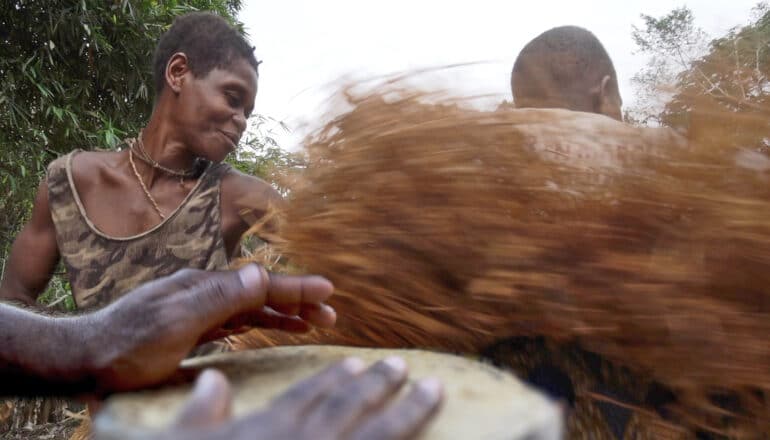
Researchers have discovered previously unknown links between culture, language, and genes among different hunter-gatherer populations in Central Africa.
Central Africa has been occupied by hunter-gatherer populations for hundreds of thousands of years, according to recent research based on genetic, archaeological, and paleoenvironmental data.
However, contemporary hunter-gatherers living in the Congo Basin speak languages that they have acquired from their agricultural neighbors, the Bantu, in recent times. This raises the question: which elements of ancient cultural diversity in Central Africa stem from long-term evolution and regional cultural exchange predating agriculture, and which aspects are influenced by interactions with farming communities?
“We found that the distribution of musical instruments among hunter-gatherers correlates very strongly with those genetic segments that are of ancient origin,” says Andrea Migliano from the evolutionary anthropology department at the University of Zurich. “So, these populations were exchanging musical instruments long before there were any agricultural populations in the region.”
The timing of genetic exchanges between populations can be inferred by tracing the origins of specific genome segments. To this end, the researchers assembled genetic data from 11 Central African hunter-gatherer groups and divided their DNA into segments based on the timing of the exchanges: those introduced through introgression or exchange with Bantu populations, those from recent exchanges between hunter-gatherer populations, and those of ancient origin.
Additionally, the team compiled an extensive dataset of musical instruments and foraging tools, along with their names from historical documents and ethnographies. They then compared how the structure of cultural diversity—the similarity between groups in musical instrument and subsistence tool repertoires, based on the presence or absence of similar musical instruments—correlated with genetic diversity at different points in time.
“It was surprising that, although the different Central African hunter-gatherer groups speak languages from very different families, they share a disproportionate number of words related to music. Therefore, these words can be traced back to a time before the hunter-gatherer populations adopted the languages of their Bantu neighbors,” Migliano says.
The results suggest that extensive interactions among hunter-gatherer groups in the Congo Basin, even those separated by thousands of kilometers, influenced not only their genetic makeup but also their linguistic and cultural traits.
These extensive social networks helped maintain a cultural diversity that evolved thousands of years before the arrival of the agriculture in the region. Migliano adds: “The large-scale cultural networking of modern humans has deep roots in the past, at least in Central Africa.”
The study appears in Nature Human Behaviour.
Source: University of Zurich
The post Hunter-gatherer cultural networks in Central Africa have ancient origins appeared first on Futurity.
from Futurity https://ift.tt/NCi9p8t
No comments:
Post a Comment